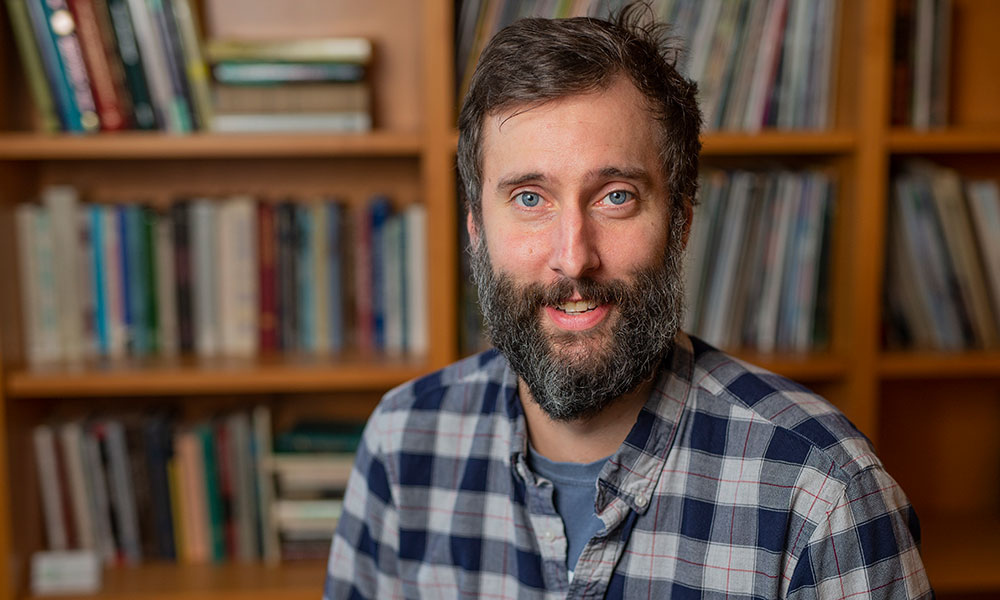Sam Cowling, associate professor of philosophy at Denison University, analyzes the key arguments surrounding the existence of abstract entities like numbers, properties, and possibilities in his book “Abstract Entities.” Cowling provides a critical assessment of the problems and questions raised by abstract entities and the debates about existence, truth, and knowledge that surround them. “Abstract Entities” covers the main arguments for both sides of this metaphysical dispute, while also raising new questions.
For Cowling, writing this book confirmed his suspicion that some philosophical questions are very difficult to answer. “Trying to conclusively settle a question that people have struggled with over extensive periods of time is extremely challenging,” he says. Still, Cowling gravitates toward these puzzling questions that many others find too daunting to approach.
For some philosophers, debating the existence of abstract entities is questionable. “I wanted to figure out whether it was ridiculous,” Cowling says.
Teaching bits of his material in the classroom and getting feedback from his students aided Cowling in writing his book. “Especially in a field like philosophy, it’s important to ask a large number of people whether what you are saying sounds bizarre or implausible,” he says, “classrooms are a great space to do that.”
In a way, Cowling used “Abstract Entities” to lend a helping hand to the past parts of himself. “When I think about the works of philosophy that I value, it’s usually because of the formative role they had on me when I was learning about philosophy,” he says. “So when I was thinking about writing this book, one thing I cared a lot about is that it’s the kind of book I could have given to myself when I was an undergraduate or graduate student.”
One of the most interesting aspects of Cowling’s research was learning about the history of the dispute. “People thought there were moral and political stakes tethered to these questions,” he says. “Some philosophers thought that to deny the existence of abstract entities was to forswear the possibility of human progress.” Reading about these arguments put Cowling’s own research into a new perspective, and allowed him to see the philosophical past in a new light.
Next up, Cowling aspires to explore how abstract entities are bound up with works of fiction, a topic that he has written a few articles about already. He also is working on a book about the philosophy of comics, which connects with his teaching in the classroom as well as the question of how familiar human artifacts raise difficult metaphysical questions.
